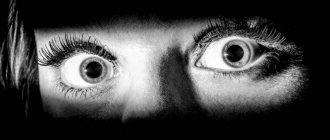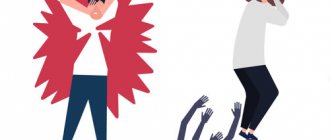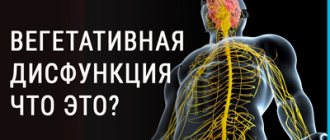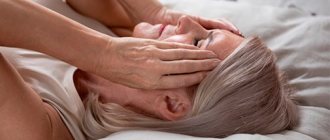Nocturnal panic attacks, sometimes called “nighttime panic attacks,” can occur either during sleep or while trying to fall asleep. They are characterized by a sudden onset of fear, and usually lead to a variety of unpleasant physical symptoms. These may include:
- Cold sweat
- Cardiopalmus
- Hyperventilation and shortness of breath
- Fluctuations in body temperature (fever or chills)
- Chest pain
- A depressing feeling of doom
Panic attacks usually don't last more than 10 minutes, but the effects (which can be emotional, physical, and cognitive) can last a long time.
Why do panic attacks happen at night?
At night, we are left alone with our fears. It is easier to escape from worries and unpleasant thoughts during the day than at night. If a person is prone to anxiety and has a number of accumulated problems, or is experiencing stress, then the likelihood of nighttime panic attacks increases.
In this state, our brain is in “defense mode,” constantly monitoring for threats, including any changes it senses in the body. So if you go to bed feeling tense, when your body begins to relax, it may perceive it as something dangerous and trigger a stress response. Panic attacks are your body's way of protecting you.
What to do during a panic attack: first aid
A panic attack occurs at any time and it doesn’t matter whether the person is in a company or at home alone. When an attack occurs, you need to pull yourself together as quickly as possible and help yourself. For this:
- go out into the fresh air, and if this is not possible, open the door wide open and unbutton tight clothes;
- wash with cold water;
- breathe slowly, deeply, deeply, and to increase the concentration of carbon dioxide in the body, you can breathe into folded palms;
- switch your thoughts to something good, and if that doesn’t work, then count slowly to 100;
- rest your body on a stable surface, grab the table with your hands, which will allow you to gain a feeling of confidence and control;
- convince yourself that the attack will end now and will not cause harm, since this is a figment of the imagination.
If an attack occurs in someone from the environment, it is necessary to help the person, namely:
- do not panic;
- help the victim leave a stuffy room or dangerous place, take him away from the crowd;
- call an ambulance;
- take the victim by the hand if he allows you to do this and listen to him;
- if during a conversation it is possible to determine the cause of the attack, try to eliminate it;
- if there is shortness of breath, let the victim breathe into a paper bag;
- switch attention to other objects or others.
During a panic attack, victims often perceive the person who wants to help negatively, with fear, and sometimes aggressively. In this case, it is enough to simply be nearby to help the person when their condition worsens or to prevent dangerous actions.
Most often, panic attacks develop with mental illnesses such as phobias, depression, schizophrenia or other endogenous mental illnesses, post-traumatic stress disorder, obsessive-compulsive disorder.
Nightmares
Panic attacks that occur during sleep are usually caused by nightmares. Nightmares are considered a form of sleep disorder that affects the nervous system, causing unusual behavior.
Nightmare
Nightmares are episodes of intense fear during sleep, usually occurring in the first third of the night. You may wake up terrified with a frantic intensity of physical symptoms that trigger a panic attack.
Treatment of sleep disorders in panic disorder
The use of hypnotics (drugs with a hypnotic effect) in a short course may be promising if sleep disorders predominate in the clinical picture in order to prevent the severity and chronicity of the disease.
Antidepressants are recommended for long-term use as sleeping pills without the risk of developing addiction and dependence.
with sedative effect and melatonergic drugs. In case of chronic insomnia, priority goes to non-drug treatment methods, among which the leading one is psychotherapy.
What to do when attacks occur before bed?
As mentioned above, at night we often begin to process all the stresses of the day or worry about the day ahead. Panic attacks before bedtime usually occur during stressful moments in life, when our head is filled with problems. Maybe these are quarrels in relationships, conflicts at work, a period of painful changes.
After we've had a panic attack, worrying about it happening again can create a vicious cycle in which we become afraid to fall asleep. Although this type of reaction is considered normal, it often causes even more concern.
Panic attacks: causes
Why do panic attacks occur? The main causes of panic attacks are varied.
1. Disruption of the higher vegetative centers.
2. Discoordination of the autonomic nervous system.
3. Vegetative-vascular dystonia (VSD, vegetative-vascular dystonia, vegetative dystonia).
4. Phobic neurosis, phobia.
5. Depressive neurosis, depression, depressive disorder, depressive state.
6. Stress, stressful situation, worries, difficult life situations, anticipation of stress, nervous exhaustion.
7. Excessive impressionability, suspiciousness of a person.
8. Pathology of endocrine organs, endocrine glands, endocrine diseases.
9. Pheochromocytoma.
10. Mitochondrial diseases (CFS, chronic fatigue syndrome, cardiomyopathy, migraine, glycogenosis, pancytopenia, mitochondrial diabetes mellitus /+ myopathy, hearing loss/, connective tissue diseases, hypoparathyroidism, liver failure, Kearns-Sayre syndrome, MELAS syndrome, Barth syndrome, MERRF, Pearson syndrome).
11. Diseases of the cardiovascular system (atherosclerosis, ischemic heart disease, angina pectoris, arrhythmia, hypertension, high blood pressure, hypertension, hypotension, low blood pressure, myocarditis, myocardiopathy, obliterating endarteritis, conduction disorders, etc.).
12. Somatoform dysfunctions.
13. Hereditary predisposition.
14. Large mental and psycho-emotional load.
15. Consequences of diseases such as intrauterine hypoxia, perinatal encephalopathy, minimal brain dysfunction in childhood.
16. Constant restraint of one’s feelings, strict control over one’s own feelings (joy, sadness, resentment, delight, anger).
17. Accumulation of negative negative energy.
18. Childhood mental trauma (psychotrauma in childhood).
What to do if you have a panic attack at night
If you are having a panic attack, experts advise taking the following steps:
- Close your eyes and inhale slowly and deeply through your nose.
- Then exhale slowly and deeply through your mouth.
- If you can, continue this process as long as it lasts, counting 1 - 5 on each inhalation and exhalation.
Try to accept that you are experiencing a panic attack without any resistance. When we try to fight anxiety, we only make it worse. It can be scary, but try to move towards the anxiety rather than away from it.
Panic attack
Once you feel better, the worst is over. Just remember – your body is on high alert right now, so it will likely take some time to calm down again. So sleep is out of the question for a while.
What are panic attacks and their types
A panic attack is an inexplicable phenomenon of a severe attack of anxiety, fear, which is accompanied by other mental and autonomic symptoms. Some symptoms persist for a long time after the main symptoms disappear. This is an anxiety disorder of a neurotic level associated with stress. The condition can be an independent disease or a symptom of a mental disorder.
There are several types of panic attacks:
- attributive – attacks are associated with specific phenomena;
- not associated – attacks are spontaneous and not associated with stress factors;
- atypical.
Tips on what to do after an attack
- Go to the bathroom and splash some cold water on your face. The cold causes a shock in the system, which prompts the body to go into survival mode, ultimately lowering the heart rate.
- Then try to find a simple activity that will calm you down. Wash the dishes, sweep the floor, clean out the refrigerator. Whatever you choose, do it in such a boring and mundane way that it requires minimal mental effort. Remember, you are not trying to distract yourself here, you are just doing normal, run-of-the-mill activities while your symptoms begin to subside.
- If you wake up sweaty, take a warm shower, put new sheets on your bed, and put on your comfiest pajamas. Having removed the physical evidence of a panic attack, we will start over and return to sleep as quickly as possible.
- Gradually you will begin to feel your body begin to relax. Return to bed only when you are ready. If it's not time yet, try meditating or taking a few deep breaths until your body begins to calm down again.
Remember the main thing, no matter how terrible panic attacks are, they cannot cause us physical harm.
How to stop nighttime panic attacks
Talking to a therapist can help you address the root of your anxiety and find tools to create real, lasting, positive changes in your life. At the same time, performing nightly exercise can help create a nurturing environment for your body to naturally calm down and prepare you for sleep.
- Try talking to your partner, family member or friend about what's bothering you. Take a bath or warm shower before bed. The heat will help relax your muscles and body.
- Keep a pen and paper handy. If you start to worry about things or tasks, write them down (or add them to a list on your phone). Worrying at night when you can't do anything about them is useless. Once you write it down, you can return to it at a more convenient time.
- Eliminate alcohol from your life for a while. While alcohol can temporarily numb our worries, it is also a serious stimulant for anxiety. The same goes for caffeine. Make sure you don't drink tea or coffee after 6pm.
- Be active. Never forget the importance of exercise.
- The next time you're trying to sleep, try taking your mind off the dream and focusing it on your physical sensations instead. Think about how good it feels to be in bed.
- When negative thoughts arise, imagine locking them in a small box and throwing away the key. Remind yourself: now is not the best time to think about it.
- Set yourself a designated “worry time.” It's half an hour of the day where you allow yourself to worry about as many things as you want. When you start worrying outside of these times, remind yourself so you can forget about it until next time.
- If you have trouble falling asleep for a long time, get out of bed and do something until you start to feel sleepy again. Your bed should be your sanctuary for sleep and it is important that you do not start associating it with any anxious, sleepless nights.
- Some people find that certain foods can cause anxiety. The next time you have a panic attack at night, try writing down what you ate before bed. And as soon as you make a list, start removing these products one by one until the panic attacks stop.
If you suffer from panic attacks, then your anxiety level is very high. Please remember: You do not have to go through this alone. Seek support if panic attacks begin to interfere with your ability to enjoy everyday life.
What do panic attacks in a dream lead to?
Panic attacks can be very painful, especially if a person does not understand their nature. What do panic attacks in a dream lead to? These are the following manifestations:
- headache, discomfort in the body and muscles;
- feeling of weakness, general weakness and decreased performance;
- fear of a night's rest due to the possibility of another panic attack, resulting in chronic insomnia;
- increased irritability, short temper;
- activation of the autonomic nervous system (increased blood pressure and heart rate, etc.);
- the occurrence of depressive symptoms.
These symptoms can lead the patient to various specialists (therapists, neurologists, cardiologists, family doctors, etc.). But numerous analyzes and studies usually do not show any significant deviations in the functioning of organs and systems. And often in adulthood, somatic pathology can be identified in almost every person, which doctors treat. The prescribed somatic therapy does not completely stop (eliminate) the symptoms that brought the patient to the doctor - increased blood pressure and heartbeat, nausea, flatulence, a feeling of fear, a feeling of derealization, numbness of the arms and legs, increased sweating, blurred vision, tinnitus that occur occasionally during panic attacks when waking up at night. And the circle closes, and panic attacks continue, frightening the patient even more, because he takes the prescribed treatment, but no improvement is observed.
But there is a solution to this problem! Attacks of uncontrollable fear, anxiety and panic with activation of the autonomic nervous system are manifestations of panic attacks, panic disorder. And to receive the necessary therapy, you must consult a psychiatrist or psychotherapist.
But often you can cope with panic attacks on your own.
What is important to know if you suffer from panic attacks in your sleep?
- A panic attack poses absolutely no danger. It does not lead to death, heart attack, stroke, or insanity.
- The duration of a panic attack is 30-40 minutes - this is exactly how much time passes before a stress hormone such as adrenaline breaks down in the blood and its effect on the body subsides.
- Panic attacks can occur as a result of, to some extent, stress factors: a long stay in a traumatic situation, internal conflict, a negative event, an unfavorable situation in the family or at work, etc.








